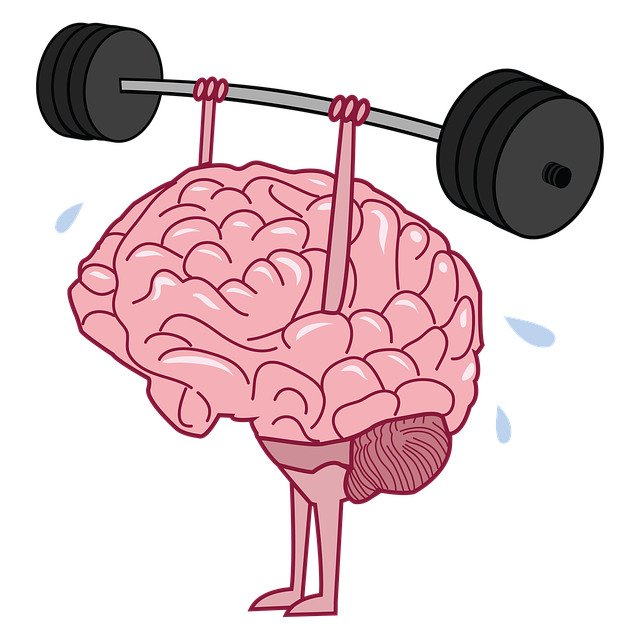Broomfield Neuro Disorders Therapy emphasizes understanding local community needs through demographic analysis, cultural sensitivity training for healthcare providers, and inclusive outreach programs. By partnering with local organizations, implementing diverse delivery methods like multi-location sessions and remote technology access, and setting clear success metrics, the initiative ensures effective mental health support, reduces stigma, and promotes wellness across demographics, especially in underserved communities. Continuous improvement is driven by tracking behavioral changes and gathering insights through follow-up surveys and case studies.
Community outreach programs play a pivotal role in extending access to specialized therapies, such as Broomfield Neuro Disorders Therapy. This article explores a strategic approach to connecting with diverse communities, from understanding local needs and identifying target demographics to designing inclusive programs and building powerful partnerships. We delve into best practices for implementation, ensuring accessibility and engagement, and highlight the importance of measurable outcomes for long-term sustainability in delivering effective Broomfield Neuro Disorders Therapy initiatives.
- Understanding Community Needs: Identifying Target Demographics for Broomfield Neuro Disorders Therapy
- Designing Inclusive Programs: Creating Effective Outreach Strategies for Diverse Communities
- Building Partnerships: Collaborating with Local Organizations to Amplify Impact
- Implementing and Delivering Services: Ensuring Accessibility and Engagement in Community Settings
- Measuring Success and Long-Term Sustainability: Evaluating the Effectiveness of Outreach Initiatives for Neuro Disorders Therapy
Understanding Community Needs: Identifying Target Demographics for Broomfield Neuro Disorders Therapy

Understanding Community Needs is a crucial step in implementing effective Broomfield Neuro Disorders Therapy programs. This involves meticulously identifying target demographics within the community that are most at risk or significantly impacted by neuro disorders. By delving into socio-economic factors, age groups, and cultural backgrounds, healthcare providers can tailor their services to meet specific needs. For instance, focusing on older adults for cognitive decline interventions or youth programs for early detection of mental health issues like depression prevention.
Effective outreach requires recognizing the diverse nature of the community and understanding barriers to access. Here, Healthcare Provider Cultural Competency Training plays a pivotal role in fostering inclusive practices. By embracing cultural sensitivity, providers can engage hard-to-reach populations, ensuring that Broomfield Neuro Disorders Therapy becomes accessible to all, thereby promoting Mental Wellness within the community.
Designing Inclusive Programs: Creating Effective Outreach Strategies for Diverse Communities

Designing inclusive community outreach programs is paramount when aiming to cater to diverse populations, such as those with neuro disorders in Broomfield. Effective strategies require a deep understanding of cultural nuances and varying needs. For instance, integrating Healthcare Provider Cultural Competency Training can bridge gaps by fostering empathy and improving communication between service providers and diverse communities. This training equips professionals with the emotional intelligence needed to create safe spaces, ensuring that services are accessible and tailored to unique cultural contexts.
Resilience building is another key component, recognizing that different communities may face specific challenges. By incorporating culturally sensitive approaches, outreach programs can empower individuals and families to navigate their neuro disorder journeys with strength and adaptability. This holistic approach not only enhances the effectiveness of Broomfield Neuro Disorders Therapy but also strengthens community connections, ultimately leading to improved outcomes for all involved.
Building Partnerships: Collaborating with Local Organizations to Amplify Impact

Building strong partnerships with local organizations is a key strategy for amplifying the impact of community outreach programs, especially when focusing on mental health initiatives like Broomfield Neuro Disorders Therapy. By collaborating with entities that already have deep roots and trust within the community, such as non-profit groups offering Trauma Support Services or those dedicated to Depression Prevention, the reach and effectiveness of these programs can be significantly enhanced. These partnerships can facilitate access to hard-to-reach populations, share valuable resources, and amplify the message of emotional healing processes.
For instance, a collaboration between Broomfield Neuro Disorders Therapy and local support groups could lead to joint workshops or webinars, combining expertise in neuro disorders therapy with the community engagement skills of support groups. Such partnerships not only expand the scope of services but also foster a sense of collective responsibility for the well-being of the community, ensuring that everyone has access to the emotional healing they deserve.
Implementing and Delivering Services: Ensuring Accessibility and Engagement in Community Settings

Implementing community outreach programs, such as Broomfield Neuro Disorders Therapy, requires a strategic approach to ensure accessibility and engagement in diverse settings. The key lies in understanding the unique needs and challenges faced by the local community, whether it’s addressing mental health issues, promoting mood management techniques, or preventing depression. By tailoring services to these specific requirements, organizations can foster trust and encourage participation from various demographic groups.
Effective delivery involves creating inclusive environments that make therapy and coaching programs accessible to everyone. This may include offering sessions in multiple locations, incorporating technology for remote participation, and providing cultural sensitivity training for staff. Encouraging community involvement and peer support networks can also enhance engagement, ensuring that services meet the specific needs of individuals while fostering a sense of belonging and collective mental wellness.
Measuring Success and Long-Term Sustainability: Evaluating the Effectiveness of Outreach Initiatives for Neuro Disorders Therapy

Measuring success and long-term sustainability are crucial aspects when evaluating the effectiveness of outreach initiatives for Broomfield Neuro Disorders Therapy. By establishing clear goals and metrics, community programs can assess their impact on raising awareness, reducing stigma, and improving access to care. One key indicator is the number of individuals reached through targeted campaigns, workshops, or support groups, with a focus on diverse communities often underserved by traditional healthcare systems.
Moreover, tracking long-term behavioral changes is essential. This could involve measuring participation in mental health education programs designed to foster emotional regulation and self-care routine development for better mental health. Such initiatives aim to empower individuals to take charge of their well-being, potentially leading to sustained improvements in their quality of life. Regular follow-up surveys or case studies can provide valuable insights into the longevity of program outcomes, ensuring continuous improvement and adaptability in meeting the evolving needs of the community.
Implementing effective community outreach programs, such as Broomfield Neuro Disorders Therapy initiatives, requires a multifaceted approach. By understanding diverse community needs, designing inclusive strategies, building strong partnerships, and ensuring accessible service delivery, these programs can significantly impact the lives of individuals with neuro disorders. Continuous evaluation and adaptation are key to long-term sustainability, allowing for a dynamic response to evolving community requirements. This holistic strategy ensures that Broomfield Neuro Disorders Therapy reaches those who need it most, fostering an inclusive and supportive environment within the community.














